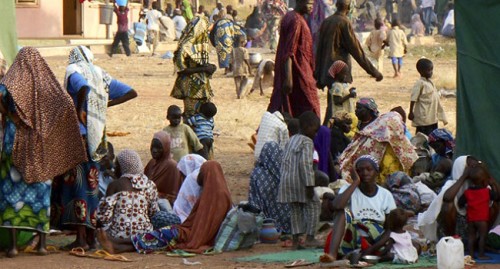The United Nations Children’s Fund (UNICEF) says the internally displaced children in Nigeria are among the world’s most vulnerable to the COVID-19 pandemic.

UNICEF Representative in Nigeria, Mr Peter Hawkins, made this known in a statement on Tuesday, May 5, 2020 in Lagos.
Hawkins said that the report, “Lost at Home”, released by UNICEF examined the risks and challenges facing internally displaced children, and the urgent actions needed to protect them.
According to him, in North-East Nigeria, there are currently 1.9 million people displaced from their homes and 60 per cent of them are children, with one in four under the age of five.
“Globally, an estimated 19 million children, more than ever before, are living in displacement within their own countries due to conflict and violence in 2019; some of them for years.
“As COVID-19 continues to spread around the world, these children are among the most vulnerable to its direct and indirect impacts.
“Hundreds of thousands of children in North-East Nigeria are living in the shadow of conflict, and now in the increasingly challenging shadow of a global pandemic which has potential socioeconomic aftermath.
“When a new crisis like the COVID-19 pandemic emerges, displaced children are, especially vulnerable and the gaps in our ability to keep them safe are even more stark.
“We must urgently work together, all of us, governments and humanitarian partners to keep them safe, healthy, learning and protected,” he said.
The UNICEF representative, quoting the report, said that there were 12 million new displacements of children in 2019.
He said that 3.8 million of them were caused by conflicts and violence, and 8.2 million by disasters linked mostly to weather-related events like flooding and storms.
Hawkins said that UNICEF and its partners were currently working to protect the displaced children in North-East Nigeria through critical health and nutrition services, access to life-saving WASH services through accelerated construction of facilities.
He also said that the organisation had adapted solutions to continuing education, including the provision of radios for distance learning, while schools were closed.
“What we really need now are strategic investments and a united effort from governments, civil society, private sector, humanitarian actors and children themselves to find solutions that can protect children from the effects of displacement.
“This is key, especially as we face the COVID-19 pandemic, and also address and help mitigate the longer term impacts this can have on children’s health and education,” Hawkins said.
By Esenvosa Izah
